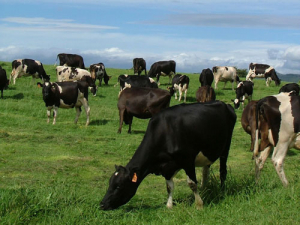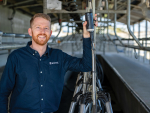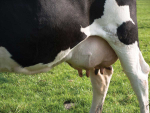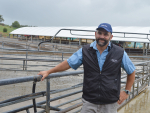Drying off is the single most important event of the year for managing mastitis in your herd.
There are two major goals at drying off: to cure existing subclinical mastitis infections and prevent new infections during the dry period and at calving.
To achieve this and do it well requires having a well thought out plan and selecting the right products and protocols that best suit your specific goals for mastitis management.
When consulting with your veterinarian on milk quality prior to drying off it is important to be prepared and, like most things in life, the more effort you put in the more you will get out of it. As dry cow therapy is a major financial investment, you want to be sure that you are using the most appropriate product for your system.
What things should you bring to your milk quality consultation?
- Clinical case records: knowing which cows are getting clinical mastitis and when and what treatments have or haven’t been working helps develop a plan for reducing the number of mastitis cases and subsequent treatment next season.
- Bulk milk somatic cell count (BMSCC): a lot of information can be gained by looking at BMSCC trends. Ideally bring several seasons BMSCC records to the consultation as these can show the prevalence of subclinical cases and even some of the possible sources of mastitis on your farm.
- Herd testing data: if you herd test bring these records. Even if you only herd test once a year prior to dry off, this information can help enormously in making treatment and culling decisions prior to dry off.
- Your goals: prior to your consultation, think about what your short and long-term goals are. If you are unsure what goals are achievable, talk to your veterinarian prior to your milk quality consultation and check out the Dairy NZ Smart SAMM guidelines about the industry benchmarks e.g. 150,000 cells/ml BMSCC average, 8-10% clinical cases per season and 1-2% mastitis culls a year.
Dry cow therapy
In light of antimicrobial resistance, as an industry we are in the process of reducing antibiotic usage onfarm. It is important however to remember that only dry cow antibiotics can cure infections (teat sealants alone do not cure). Therefore, when you need to treat a cow with a dry cow antibiotic you want to be sure you are picking the most appropriate and effective product available.
So, what should you look for in a dry cow antibiotic? On the most basic level, effective dry cow antibiotics should have a high cure rate (>70%), be easy to administer and have a milk withholding period shorter than the expected dry period.
Not only do dry cow therapy products cure existing infections; some can help prevent new infections by making partial insertion easier, speed up teat end closure (Cepravin Dry Cow is the only antibiotic DCT product that speeds up teat end closure) and they also should keep working well into the next lactation.
Dry cow antibiotics come in two major categories: short acting and long acting antibiotics.
Most short acting products cure and protect against new infections for four-eight weeks whereas long acting products such as Cepravin will cure and prevent new infections for up to 10 weeks.
With a selective dry cow therapy approach, uninfected cows do not need antibiotic dry cow therapy so a teat sealant alone is appropriate to prevent new infections over the dry period, as they form a physical barrier against the entry of bacteria.
It can be confusing which product or product combination to choose; this is where your veterinarian can assist in selecting what is right for you and your herd. Whether it be a teat sealant only, a short acting antibiotic or a long acting antibiotic, by the end of your milk quality consultation you will hopefully have the answer to this and many other aspects of mastitis management.
For helpful videos and fact sheets which expand on the information in this article visit www.topfarmers.co.nz, a reference library of industry best practice for some key animal health management areas.
• David Dymock is a livestock technical advisor with MSD Animal Health.


















